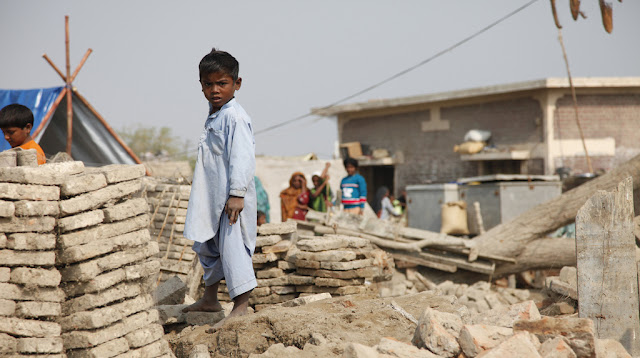The original version of this article, by Michael Kugelman, appeared on Dawn.
“Give a man a fish and you feed him for a day,” the ancient Chinese philosopher Lao Tzu famously said. “Teach a man to fish and you feed him for a lifetime.”
For years, this adage has helped frame debates across a variety of disciplines. However, while globally influential, it is by no means universally applicable – as the sad realities of
Sindh make painfully clear. In this parched, food-insecure region flush with fishermen and farmers, people have long known how to fish. The problem is that with water bodies shriveling up, there are increasingly fewer fish to catch. Many impoverished residents would be grateful for a single fish, given their struggles to secure a day’s worth of food.
Pakistan’s natural resource constraints know no provincial borders, yet they are notably severe in Sindh. Water tables are plummeting, with great volumes of Indus River flows diverted upstream to satiate agricultural and urban demand in Punjab.
Sindh’s water security is further threatened by population growth and global warming, and by the water-intensive, large-scale farming envisioned by foreign investors jockeying for agricultural land.
With surface water supplies threatened, users are increasingly tapping groundwater resources – yet according to the Pakistan Council of Research in Water Resources, a staggering 95 percent of the province’s shallow groundwater supplies are bacteriologically contaminated. This is unsurprising, given the technical deficiencies and inefficiency that characterize Sindh’s water treatment facilities.
In a province where so many livelihoods are tied to water availability and food production, water stress aggravates food insecurity and threatens economic well-being. A recent World Bank report concludes that Pakistan’s poorest spend at least 70 percent of their meager incomes on food – and undoubtedly many of them hail from Sindh. According to data from the Pakistan Agricultural Research Council, some of the province’s small farmers spend a whopping 87 percent of their incomes on food.
Continue reading on Dawn.
Michael Kugelman is a program associate for the Asia Program at the Woodrow Wilson Center.
Photo Credit: A child stands amongst buildings destroyed by the floods in Sindh province, courtesy of flickr user DFID – UK Department for International Development.
 A Publication of the Stimson Center.
A Publication of the Stimson Center.




